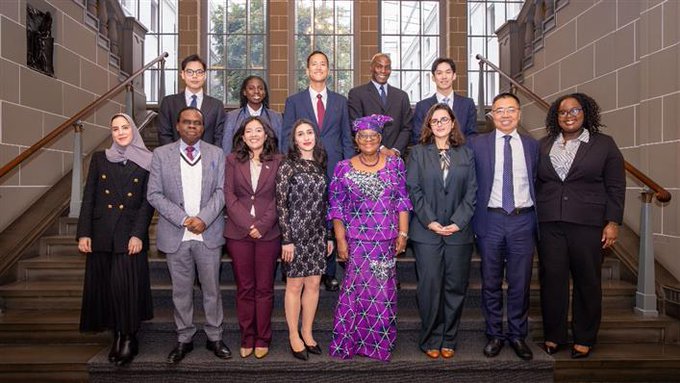The Nigeria House of Representatives Public Accounts Committee (PAC), chaired by Rep. Bamidele Salam, on March 31, 2025, disclosed the recovery of $14.2 million (N21.4 billion) from four oil and gas companies.
This is a big win for the committee’s ongoing investigation of financial imbalances in the oil and gas sector in Nigeria, one of the pillars of the nation’s economy. In addition to a prior recovery of $19.24 million (N28.7 billion) on March 16, 2025, the overall sum recovered this year is now $33.44 million (N50.1 billion). This action is not only a reflection of the House’s dedication to financial transparency but also of enormous importance to Nigeria’s economic fate.
A Step towards Financial Accountability
The recent recoveries involve four companies: Platform Petroleum Ltd ($1.9 million), Midwestern Oil and Gas Ltd ($1.578 million), Universal Energy ($523,845), and Aradel Energy Ltd ($10.3 million). This achievement by the PAC forms part of an extended investigation of the 2021 Auditor General’s report, which revealed over N10 trillion in unremitted balances owing the Federation Account by gas and oil operators.
The success was credited by Rep. Salam to the uncompromising sponsorship by Speaker Rt. Hon. Abbas Tajudeen, whose leadership has been capable of galvanizing committees to act independently and pursue accountability without hindrance.
The committee has also issued a 20-day ultimatum to four other companies—Total Energies, Seplat Energies (SPDC), Aradel Energy Ltd, and Network Exploration—to remit $23.2 million (N34.8 billion) or risk being sanctioned, including being listed in national dailies.
In addition, First E & P Oil Company is also directed to pay a $90 million account with the Nigerian Upstream Petroleum Regulatory Commission (NUPRC) by 16 April, 2025. These actions demonstrate a tough line on financial compliance in an industry that has for a long time been plagued by corruption and mismanagement.
Economic Implications of the Recoveries
Nigeria’s oil and gas sector is the linchpin of its economy, generating about 65% of government revenues and over 85% of total exports, according to the Extractive Industries Transparency Initiative (EITI).
The sector has nonetheless been bedeviled by problems such as oil theft, unlawful bunkering, and fiscal imbalances, which have hindered it from driving sustainable development. A 2019 Nigeria Extractive Industries Transparency Initiative (NEITI) report estimated the cost of oil theft alone at $42 billion in 10 years, while a 2013 ResearchGate study highlighted how widespread corruption and poor management of oil revenues have slowed economic growth.
The recovery of $33.44 million in 2025, while just a fraction of the outstanding N10 trillion, is a significant step towards solving these issues. That funds, currently locked in the Federation Account, are invested in strategic areas such as healthcare, education, and infrastructure—areas hitherto starved of finances despite the oil wealth of the nation. In context, the 2025 budget of Nigeria allocates substantial sums to social services, yet in practice releases are often low due to inadequate revenue. The recovered N50.1 billion, for instance, can be utilized to construct several primary healthcare facilities or fund educational schemes in poor communities, having a direct impact on the life of millions of Nigerians.
The recoveries may also have a multiplier effect on the economy. By encouraging financial accountability, the moves by the PAC can deter future imbalances, encouraging better corporate governance by oil and gas firms. This would in return increase investors’ confidence in the Nigerian oil industry, the world’s 12th largest and Africa’s biggest. Foreign direct investment in the sector has remained lukewarm in the recent past due to concerns about governance and transparency. ScienceDirect, in 2015, discussed how FDI and natural resource rents have significant roles to contribute to economic growth, since they drive industrialization and per capita incomes if invested optimally. With tighter regulation, it can thus yield more capital inflows and drive the creation of jobs as well as drive the economy.
Repelling Systemic Risks
Recoveries as positive as they are must also be viewed in the context of Nigeria’s overall ailments. The 2021 Petroleum Industry Act (PIA) sought to introduce reforms that would promote governance and transparency in the oil industry, yet there has been slow implementation.
The report of the PAC is in agreement with the PIA objectives, yet corruption and oil theft persist. In a 2023 ResearchGate report, it was highlighted how sabotage, illegal bunkering, and elite-level corruption have negatively impacted Nigeria’s national economy and the Niger Delta environment.
These activities are driven by events such as youth unemployment, crooked police, and international crime syndicates to which the recoveries themselves cannot even begin to put an end. Additionally, the economy of Nigeria remains very resource-dependent, a trend that has capped its growth potential previously.
According to a study by ScienceDirect in 2015, even as oil revenue has a tendency to increase economic growth, negative openness as well as poor quality of education act as channels of slow growth. The study advised that oil revenues should be channeled towards building human capital as well as the tradable sectors for long-term growth. PAC recoveries present an opportunity for redirection of funds into those sectors, and this shall be through purposive policy direction and political will.
A Ripple Effect on Governance
Aside from the immediate fiscal impact, the steps taken by the PAC would have a rippling effect on governance in Nigeria. The committee’s emphasis on transparency and accountability in the oil industry could create a precedent for other sectors to promote a culture of fiscal responsibility company-wide.
A 2023 ResearchGate article on legislative oversight in Nigeria wrote that the legislature has generally failed to institutionalize accountable governance owing to executive control and corruption. However, the recent achievements of the PAC reflect a swing in the direction of improved regulation, which may regain public faith in government bodies.
Rep. Salam reiterated this statement, affirming, “The age of impunity and fiscal irresponsibility in the oil and gas industry is ending. We are determined to retrieve every kobo owed the Nigerian people.” This resolve, with Speaker Abbas’s firm leadership backing it, may set the stage for better economic management, guaranteeing probity in the handling of public funds.
Looking Ahead
The ongoing investigations by the House of Representatives are likely to uncover further discrepancies, with current public hearings on the 2021 Auditor General’s report. If the PAC maintains the current pace, further recoveries are likely to significantly contribute to Nigeria’s coffers, providing a much-needed boost to the economy.
For these funds to yield tangible economic dividends, however, the government must tackle the deep-seated issues of oil theft, corruption, and dependency on resources. Investment in human capital, infrastructural growth, and diversification will be key to ensuring that Nigeria’s oil wealth finally translates into sustainable development for Nigerians.
Overall, these recoveries by the House of Representatives Public Accounts Committee is a commendable step towards financial accountability in Nigeria’s oil and gas sector. Even though the short-term economic impact is minimal, long-term effects—improved governance, improved investor confidence, and prospects for sectoral reforms—could be transformational.


























